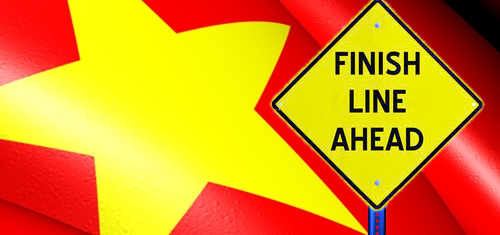 Vietnam is putting the final touches on regulations governing legal sports betting, horse and dog racing.
Vietnam is putting the final touches on regulations governing legal sports betting, horse and dog racing.
On Thursday, the Vietnamese government reported that Deputy Prime Minister Vuong Dinh Hue had asked the Ministry of Finance to tweak its betting draft decree and submit a revised copy by August 15.
The new decree envisions issuing five-year licenses for companies to offer wagering on racing meets and international football matches (with the clear implication that they don’t want local leagues subject to potential fixing issues).
Other details include preventing betting agents from setting up shop within 500 meters of schools or public parks at which children congregate. Hours of operation for betting agents will be up to the government, not operators.
The decision on who will qualify for a betting license will be subject to the Law of Investment and the Law of Bidding. However, companies that have at least five years of experience – what type of experience isn’t specified – will be allowed to “distribute gambling tickets” via phones and “other means of telecommunication.”
But the release pointedly states that “there are no regulations for internet ticket distribution,” leaving open the question of what other forms of telecom betting they have in mind. Fax machines? Paper cups connected by string?
The notice also stated that betting firms cannot use “pictures or results from international horse and dog races as a basis for a betting business in Vietnam.” Vietnam has some domestic racetracks, for which UK firm Sportech struck a deal last December to provide betting technology, but the decree’s language suggests pooling liquidity with international operators isn’t in the cards.
The notice contained no new information regarding the oft-delayed promise to relax restrictions on Vietnamese casinos being allowed to admit local residents.
SILVER SHORES SEEKS EXPONENTIAL TABLE GAME EXPANSION
Meanwhile, the Silver Shores casino – aka the Crown International Club – in Da Nang has asked the government to allow it to dramatically expand its number of gaming tables. The property opened in 2010 with a mere eight tables, and got its knuckles rapped in 2014 when officials discovered it had covertly expanded this number to 15.
At a meeting with government officials this week, Silver Shore’s chairman Huynh Duo Tho formally requested that the property be allowed to operate 80-100 additional tables. Business with Chinese VIP gamblers is reportedly booming, and if the table request is granted, Huynh claimed the government stood to collect an extra $136m in annual tax payments.
Vietnamnet reported that the government response was that the request would be considered only after the draft decree on gambling was finalized. So like everyone else, Silver Shore must wait to see how much slack the government intends to cut both operators and gamblers.